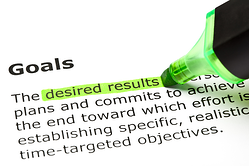 Managing the Complexity of Enterprise Document and Content Management
Managing the Complexity of Enterprise Document and Content ManagementDocument and Content management can be perhaps one of the most important undertakings in a business. You will require a credible platform in a well-managed cloud infrastructure to ensure the security of your business documents and afford you high quality customer service; including the opportunity to speak to senior engineers and friendly customer care agents when you need them. Do you get as frustrated as I do when you can't speak to a live person when trying to troubleshoot an issue?
Check out the following ten lessons derived from successful ECM projects.
1. Focus On what Your Business Needs Most
You need to conduct an audit to establish which features of a ECM or document management platform would benefit your organization the most in terms of efficiency enhancement without losing the return on investment, then focus on them.
2. Construct a Well-Organized Information System
To enhance efficiency, ask your vendor for help on organizing extensive and diverse information into fewer archives or repositories. You then need a credible SaaS document management platform which offers diverse information solutions, including accounts payable automation, HR workflow process automation, NGO process automation and marketing content asset management among others.
3. Never Underestimate Anything
To succeed in managing the complexity of your content, never underestimate or assume such smaller operations like editing, formatting and migrating content. In a ECM project, everything matters. The more your vendor knows about your business the easier your system will be.
4. Be Creative in Combining Design and Technology
You should make sure to closely incorporate all aspects of design and technology in evolving your CMS project. You need to integrate information systems, database programming and interactive screen technologies.
5. Be Dynamic in Your Design
To keep in pace with the ever changing business environment and requirements, you need to be able to make changes easily and faster than your business changes.
6. Consult and Borrow Ideas
It is often said that there are alternative solutions to every problem. As such, you need to consult colleagues for a second opinion. ECM is too dynamic and intricate to design and execute in isolation.
7. Procure Cost-Effective ECM software
Some ECM software is expensive and, fittingly, you should only buy the right package to suit your organization’s business needs.
8. Appoint Competent ECM Project Managers
You should enlist highly competent and motivated project managers to oversee all user interface and technological aspects of your ECM Project if its creation and execution is going to succeed.
9. Put Your Business in a Credible Enterprise Content Management Platform
Realizing the risk of on-premise content management, it is imperative to use a proven cloud infrastructure to ensure security of your content and efficiency of your business.
10. Keep Your ECM Project Team Reasonably Small.
Instead of a large team which may be cumbersome to coordinate, constitute a small multi-disciplinary team of skilled and experienced members to work with your vendor on the design and execution of your project.

